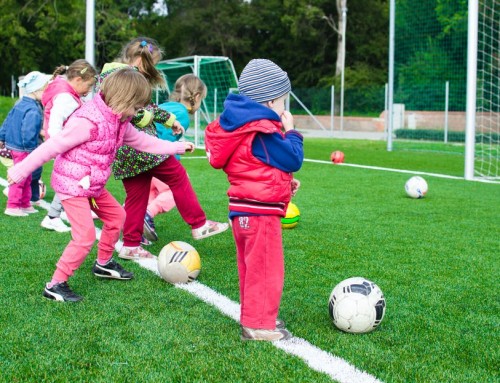Did you know in 2018, 56.6 million students attended secondary and elementary schools?
Not sure how to help your child go to school? Not to worry! We’ll cover why your kids are reluctant to go to school, what causes the reluctance, and how you can support them.
Want to learn more? Keep reading to find out!
Helping Your Kids Go to School
Children who refuse to go to school or want to stay at home may struggle with anxiety. This isn’t the same as children who are defiant and deceptive. Kids might miss school and not tell their parents.
Let’s look at how to help your child get to school.
Are There Physical Complaints?
If your child complains of physical symptoms and wants to stay home often, it’s time to call your physician. They can try and discern if there is anything wrong with your son or daughter.
Are There Patterns?
Find out if on certain days your child wakes up with a headache or stomachache. Do they complain about these things when they’re distracted or busy? Do they feel ill on Sundays or Saturdays? Take note of when things prop up.
Notice what’s happening that causes your child to avoid school.
Chat with Your Child
Sit down with your son or daughter and talk to them about what’s bothering them. Make it clear that there is a plan for them to return to school.
Sometimes, children can’t describe what’s upsetting them. Don’t try and force the conversation.
Don’t lecture them on the importance of going to school. This doesn’t help and can often make things worse. Any kind of attention can maintain and strengthen a problem.
The critical message to send to your child is this: you believe they can conquer the problem. Let them know you’re there to help.
Set Up a Meeting
Try and set up a meeting with the school counselor or teacher. They will see that you’re committed to getting to the root of the problem and that you’re involved. Find out from the teacher if there are any things they notice in the classroom.
If bullying is happening at school, it needs correction and addressing right away.
Staying at Home Rules
Make sure that there isn’t a great appeal to stay at home. If your child is ill, they’ll need to remain in bed and rest or see a doctor.
Keep the television and video games off. Some kids have free reign of the house when they’re at home, and this makes it more appealing.
Encourage a Learning Environment
If your child does stay at home and isn’t ill, make they sit at a desk and read or study. For adolescents, make sure they wake up at a particular time. It’s difficult of course, for working parents to watch this, but try your best.
If your friend lives close by, ask them to pop in and work from your place that day.
Sick Policy
Consider having some rules set up ahead of time. For example, if your child doesn’t have a fever, they must go to school. If they’re ill, the school nurse can send them home after an examination.
Your child may love the extra attention they receive while arguing over if they get to stay at home or not. If you have a sick policy in place, this removes that struggle.
Ask For Help
Have someone else take your child to school for a chance. Do this until the situation’s resolved. Emotions become supercharged during this time. Remove yourself from the situation to take a breather.
If there is separation anxiety with one parent, have the other parent take the child to school. A relative or close friend could also help by driving your child to school.
Remain Calm and Supportive
It’s stressful to see your child upset and worried about attending school. Remember, try and remain supportive and calm, but firm as well. Your child needs to go to school to learn and make friends.
Consider diffusing aromatherapy oils in your home. This will help everyone relax.
Have a Positive Attitude
As a parent, being a role model to your child will help them so much. You’re an influential teacher in their life already. When taking the time to read a book to your child, you’re instilling a positive learning attitude.
Teach Respect
While discussing school, remember to talk to them about respecting their teachers. There are some teachers they will love and some they will dislike.
It’s still wise to respect those teachers they may dislike. If you speak about these teachers with kindness, your child will take note.
After School Activities
This is a fun way to encourage your children to pursue their interests outside of the classroom. This also gives them something to look forward to once their studies finish for the day. Building Kidz has many different programs available.
Show them the various clubs or sports they could take part in.
Don’t Overschedule
There are so many activities you could sign your child up for. Art class, karate, baseball, and music lessons to name a few. Most kids’ schedules are so packed that its no wonder they feel overwhelmed and anxious to go to school.
Try to make sure you don’t overpack the schedule. Pick one or two after-school activities that your child can look forward to. They can socialize and make friends.
Want to Learn More?
We hope you found this article on helping your kids go to school insightful. Your child could feel stressed or anxious because of a situation at school. Talk with them and their teacher to learn more.
Want to learn more? Check out our guide on rainy day activities.











